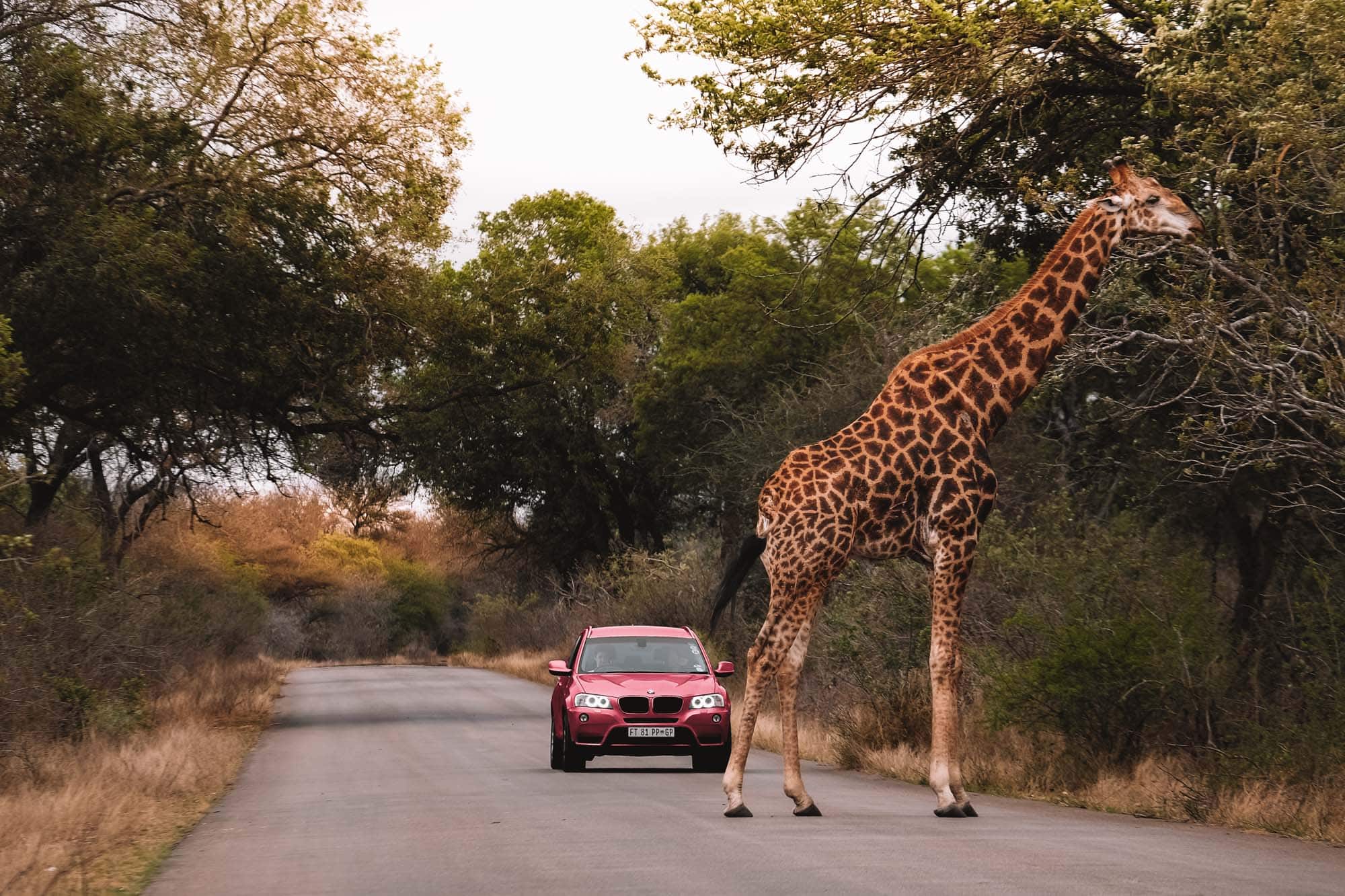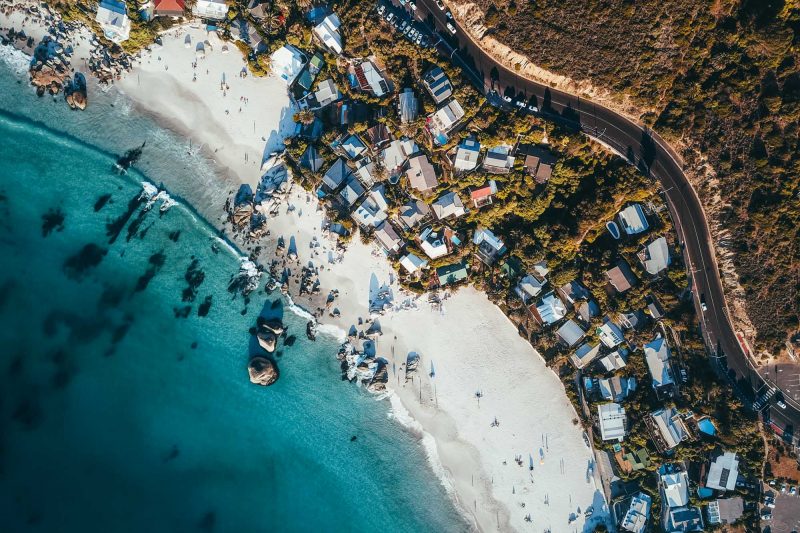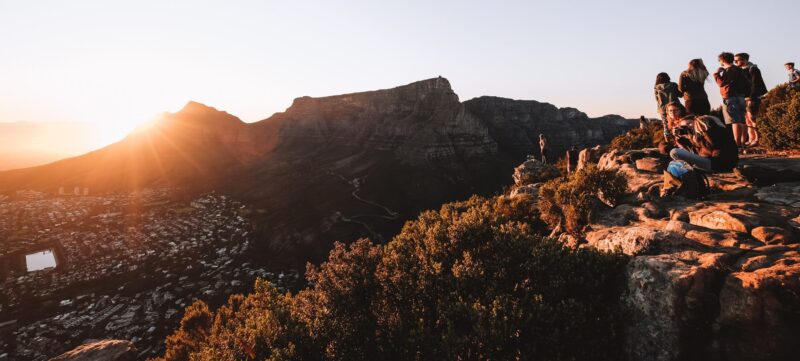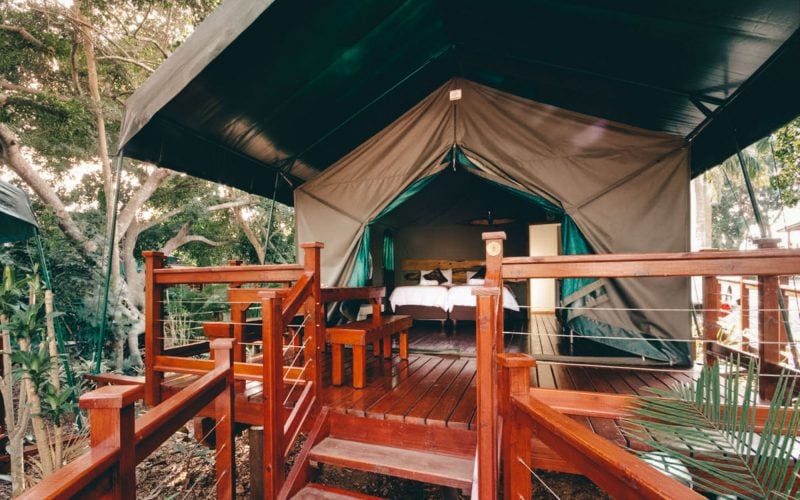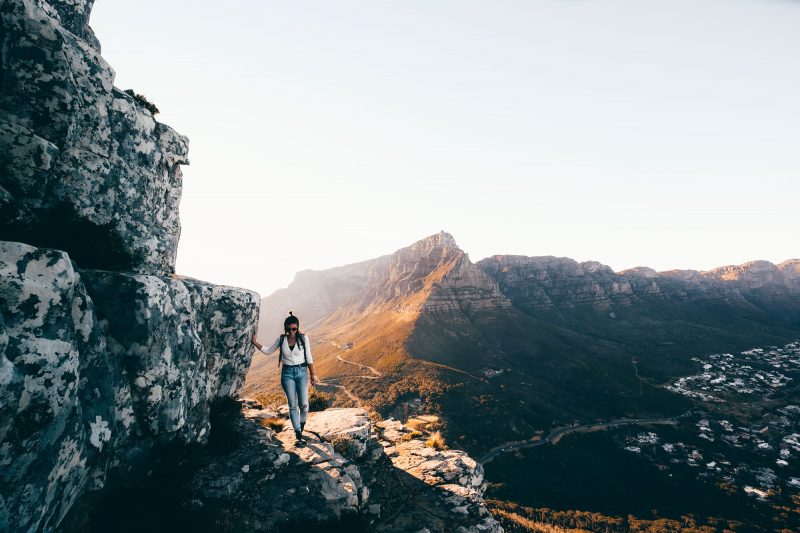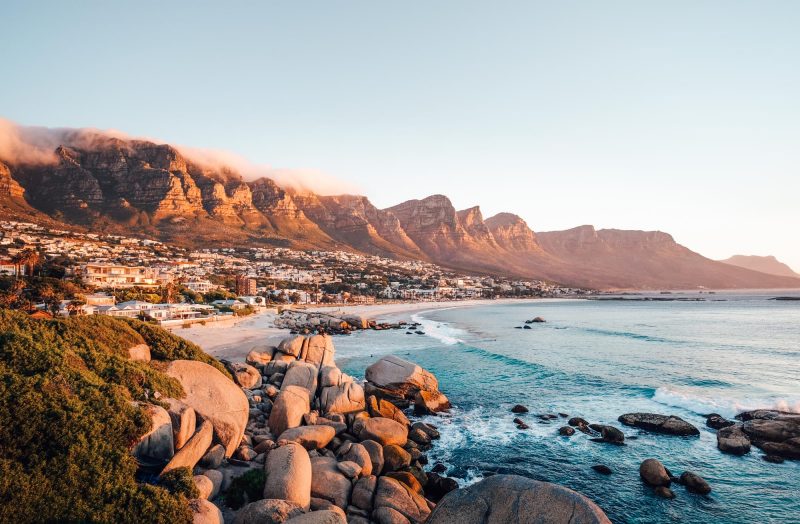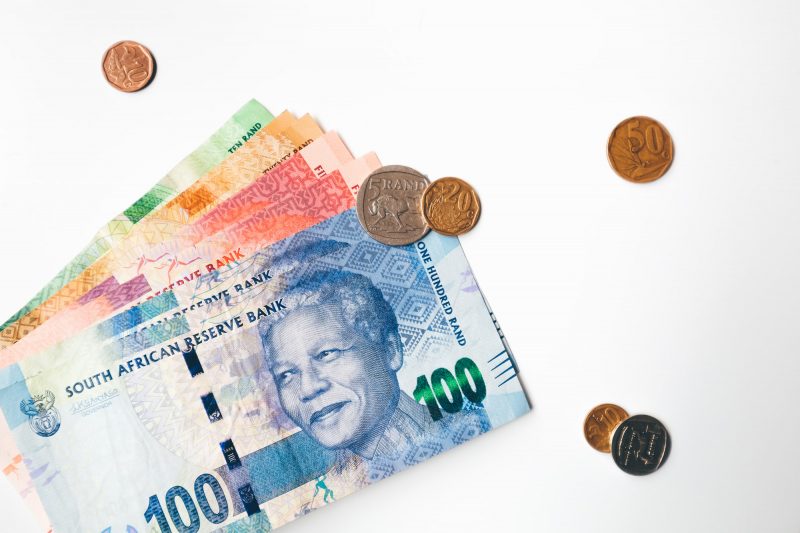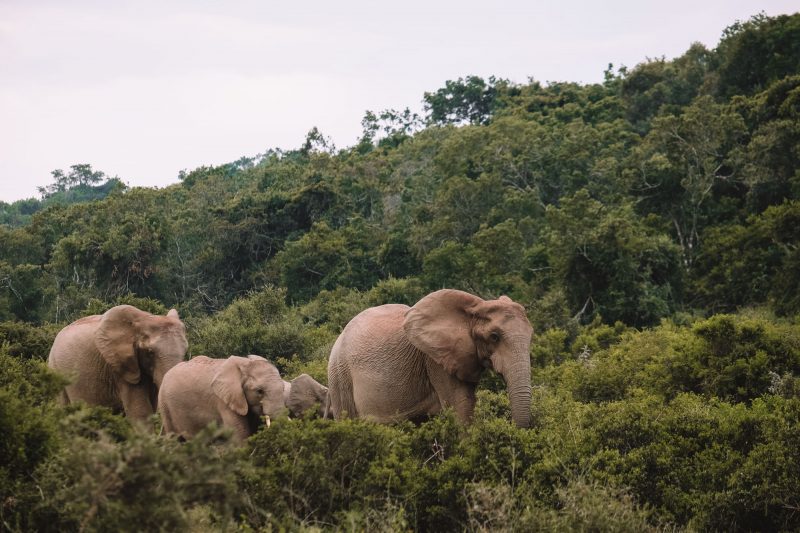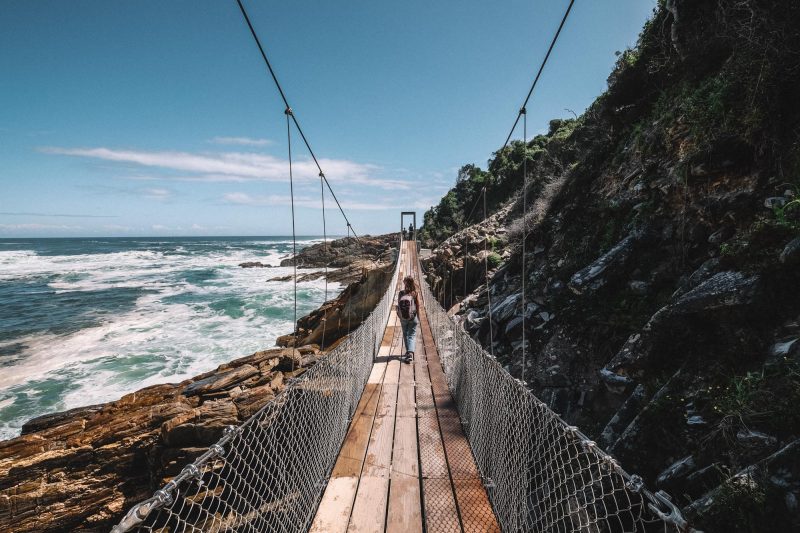If you ask us, renting a car is not only ideal but actually essential when traveling through South Africa. In smaller towns, you’ll hardly find any taxis, and when driving from point A to point B, there are often beautiful stops along the way. Moreover, it’s incredibly exciting to explore the national parks and spot wildlife by driving your own rental car. Without a rental car, you’re likely to miss out on many beautiful things in South Africa and end up spending a considerable amount on organized safaris. However, there are a few things worth knowing before renting a car in South Africa. Did you know, for example, that they drive on the left side of the road in South Africa?

Is it safe to drive in South Africa?
Yes, driving in South Africa is certainly safe. The traffic is relaxed and not chaotic at all. However, there are a few things to be aware of before getting in the car. As mentioned earlier, they drive on the left side of the road in South Africa, which may take some getting used to at first. After one or two days, you won’t know any different, and everything will come naturally. You’ll see a lot of hitchhikers along the side of the road in South Africa. These are usually locals who don’t have their own cars. While most people may not have ill intentions, it is still advised not to pick up hitchhikers. While driving, it’s best to keep the doors locked and avoid leaving any belongings or loose change in the car when parking. In major cities like Johannesburg and Cape Town, there have been instances where they remotely block the keys of your car using a device. This prevents your car from locking, and you may not realize it until it’s too late. Therefore, always double-check if your car is locked when parking, and if you notice that your key is blocked, park your car somewhere else. We personally didn’t experience any unpleasant incidents, but following these tips will minimize the chances of any trouble.

What are the road conditions like in South Africa?
The roads in South Africa are generally in good condition. Between major cities, you’ll find wide, often dual-carriageway highways. Occasionally, you may encounter toll roads. The toll fee is usually no more than a few dollars, and you can pay with cash or credit card. Your rental car might have an e-tag installed, which is a chip scanned at the toll gates. If you have an e-tag in your car, you can use the “fast lane.” All toll fees will be later charged to your credit card by the rental company. Unfortunately, not all roads in South Africa are equally well-maintained, and in more remote areas, some roads can be quite potholed. Usually, these are indicated by warning signs. Adjust your speed accordingly, as these potholes can sometimes be as deep as 30 cm (11 inch).

The written and unwritten traffic rules in South Africa
With a few exceptions, traffic rules in South Africa are quite similar to those in the other parts of the world. You’ll notice a significant number of stop signs at intersections in South Africa, and when you encounter one, you are expected to come to a complete stop. At some intersections, everyone has a stop sign. In such cases, the rule is that the person who stops first has the right of way. You’ll find that in South Africa, they take stop signs very serious.
In addition to the written traffic rules, there are a few unwritten rules and practices that are good to know. If someone wants to overtake you on a single-lane road, it is expected that you give them space by moving partially or completely onto the shoulder. Naturally, only do this if you have 150 meters (492 feet) of visibility and there are no pedestrians on the shoulder. When someone has overtaken you and moved back in front of you, it is customary to thank them by briefly flashing your hazard lights. If someone wants to overtake you and signals for you to move aside, they will flash their lights or tailgate slightly. Moreover, there are many speed cameras in South Africa. The interesting thing is that oncoming drivers often warn you by flashing their lights if they spot a speed camera ahead. At a police checkpoint, they may ask for your international driver’s license, so make sure to carry it with you. If you don’t have one yet, you can obtain it from the respective authorities.
Fueling and parking in South Africa
At gas stations, attendants will always pump your gas and clean your windows. It is customary to give a tip of about 5 dollars for this service. Parking in South Africa is almost always free, except in Cape Town. There, you’ll find parking attendants who will watch your car while you’re away. If you’ve parked for less than an hour, you can give them around 2 to 5 dollars. If you’ve parked for a few hours, give them 5 to 10 dollars. Additionally, there is one parking rule you should remember: when parking on the side of the road, make sure your car is facing the right direction of traffic. Unfortunately, we weren’t aware of this and received a fine of $30. If you do receive a parking ticket, try to pay it in South Africa. The ticket will provide instructions on how to do so. If you fail to pay it there, the rental company will charge you additional administrative fees later on.
Booking a navigation system for your rental car is no longer necessary these days. Before your trip, download the map of South Africa in the Google Maps app so you can easily navigate offline while traveling. It’s also helpful to pin your pre-booked hotels and any attractions in Google Maps. If you need to refuel along the way, you can search for the nearest gas station using Google Maps.

Don’t forget your credit card
Make sure to bring a credit card that is in the name of the main driver. This is required for the deposit, and a credit card in another name will not be accepted. You won’t be able to pick up the rental car if you can’t show a credit card in the name of the main driver or if the credit card doesn’t have sufficient funds for the deposit. If you don’t have a credit card yet, we recommend this credit card.

Additional tips for renting a car in South Africa
- The minimum age to rent a car in South Africa depends on the rental company. In most cases, it’s 21 years old, but some rental companies allow renting from the age of 18. However, drivers under the age of 25 may be subject to a young driver surcharge. This information can be found under the “specific terms and conditions” section during the booking process.
- The police may ask for an international driver’s license. Make sure to have both your national driver’s license and international driver’s license with you in the car at all times.

What does it cost to rent a car in South Africa?
When renting a car in South Africa, prices can vary depending on the season and how early you book. Booking a rental car through Rentalcars.com is highly recommended for South Africa. With a rental car, you always have a chance of damage and problems along the way, which is why it’s smart to book with a reliable party. At Rentalcars, you can always take out a Full Protection Insurance, you can change your booking for free and all conditions are clearly indicated. So you don’t have to worry about snags and if something goes wrong on your trip, everything is always reimbursed and taken care of. This is totally worth it as far as we are concerned, especially on holiday.
Note: Sometimes the local rental company will try to sell you extra insurances. These are absolutely unnecessary as everything is covered with Rentalcars’ Full Protection Insurance. So don’t be fooled because you are 100% covered, even your excess will be refunded in case of damage.
Price hikes due to shortage of cars: There is currently a huge shortage of rental cars worldwide. To survive the corona crisis, car rental companies have had to sell a large portion of their cars. Since demand is rising fast, there are not enough chips for new cars and prices are skyrocketing due to the shortage. As a result, many rental cars are double the price or even fully booked. It’s best to book as early as possible to be sure of a rental car that is still somewhat affordable. At Rentalcars.com, you can currently cancel or change your booking free of charge up to 48 hours in advance, so you are not stuck with anything but still be sure of a rental car.

